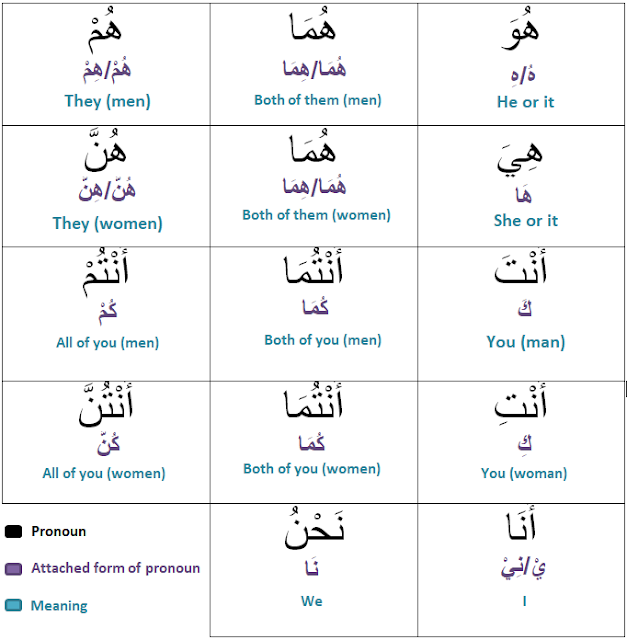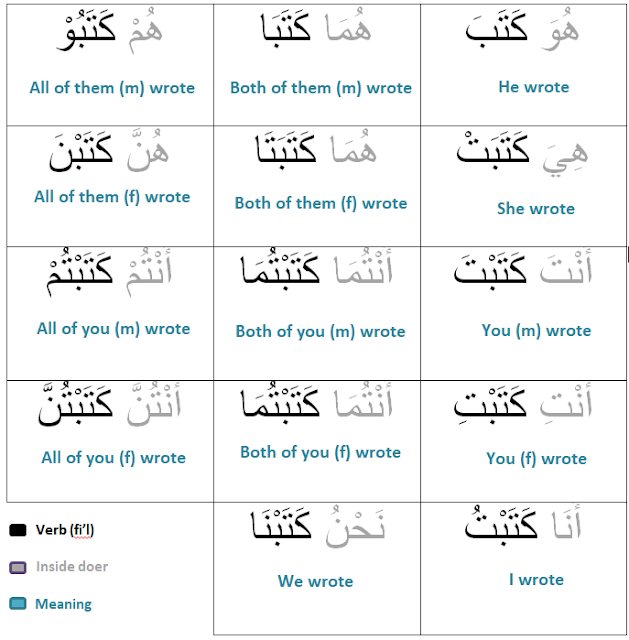Hadhiya (Blog post 18)
“And
when the caravan departed, their father said, “Indeed I find the scent of Yusuf
if you don’t think of me as weakened in mind.” Surah Yusuf, 94
Subhaanallah
this is one of those places from the stories of the Quran that makes me
desperately wish everyone knew the beauty in
these stories. And I pray that I am able to explain this bit as clearly as
possible. So here goes.
As
we all know, Yusuf (AS)’s brothers were jealous of him. They threw him in a
well and lied to their father saying that a wolf had eaten him. Ya’qub (AS),
knowing his sons realized that they were lying and yet chose to be patient.
Long story short, years pass by without Ya’qub (AS) knowing what happened to
his son. He went blind because of how much he cried for his son. While on the
other hand, with a twist and turn of events, Yusuf (AS) becomes a minister of
Egypt while Ya’qub (AS) is still in his homeland. Due to a long drought that
occurred in the area, Egypt and the lands near the country suffered from a
famine. Stored food was being distributed to people equally from Egypt to
ensure everyone survives. So Yusuf (AS)’s brothers also go to Egypt to get
their food supply. And there they meet their long lost brother. At first they
don’t recognize him though Yusuf (AS) recognized them. Eventually when Yusuf
(AS) does let them know who he is, the brothers realize the mistake they did.
Yusuf (AS) forgives them and gives them one of his shirts telling them that if
they place the shirt on their father’s face, it will bring back his sight.
The
ayah I shared above is just the next part of the story. It describes the
caravan in which Yusuf (AS)’s brothers were returning home to Ya’qub (AS) with
Yusuf’s shirt. You would think that the ayah would say, when the caravan was
getting close to Ya’qub (AS) or when the caravan was approaching Ya’qub (AS),
he said I smell the scent of Yusuf. But no. The ayah says that when the caravan
departed from, when it just left Egypt that is yet too far away from Ya’qub
(AS), he said “I smell the scent of Yusuf.” Subhaanallah! As though something
happened in this father’s heart, that had longed for his son for so many years
just at that moment when his son’s shirt was getting a little closer to him.
And even after he said that, people were telling him that he is still in the
same old error. But right in the next ayah, he comes into contact with the
shirt that brought good news!
Somewhere
in the back of your head, you might think that the ayahs describe the story
this way to make it beautiful. But we mustn’t forget that this is the Word of
Allah. Nothing in the Quran is inaccurate. Allah Knows exactly when the caravan
departed and how Ya’qub (AS) said those words right at that moment. The lesson
in this is, we will only have the sense that something good will happen, if we
hold onto hope no matter what happens.
May
Allah make us of those who hold onto hope and who never despair of His mercy.
Ameen!
PS:
It literally makes me want to cry when I realize the many beautiful bits I have
skipped from this story. There is something to ‘Wow!’ about in every bit of
every story of the Quran. Check out this awesome story yourself In Sha Allah!
http://tanzil.net/#12:1
********************************************************************
"އެ ޤާފިލާ އެ ރަށުން ވަކިވި ހިނދު
އެމީހުންގެ ބައްޕަ ވިދާޅުވިއެވެ. ޝައްކެއްނެތްގޮތުގައި ތިމަންކަލޭގެފާނަށް ޔޫސުފްގެ
ވަސް އެބަދުވައެވެ. ތިޔަބައިމީހުން ތިމަންކަލޭގެފާނު މޮޔައަކަށް ނަހަދާނެ
ނަމައެވެ." ސޫރަތް ޔޫސުފް، 94
މިއީ ޤުރުއާނުގެ ވާހަކަތަކުގެ ރީތިކަން އެންމެންނަށް
އެނގެން އަޅުގަނޑުގެ ހިތުގައިވި އެދުން ވަރުގަދަ ކުރާ އާޔަތްތަކުގެ ތެރެއިން
އާޔަތެކެވެ. މި އާޔަތް ވީހާވެސް ސާފުކޮށް ކިޔައިދިނުމުގެ ތައުފީޤު ދެއްވުމަށް އެދި
އަޅުގަނޑު ދުޢާކުރަމެވެ.
އަހަރުމެންގެ ތެރެއިން ގިނަ މީހުންނަށް އެނގޭނެ ފަދައިން
ޔޫސުފް (އ.ސ) ގެ ބޭބެއިން އެކަލޭގެފާނަށް ޙަސަދަވެރިވިއެވެ. އެމީހުން ޔޫސުފް (އ.ސ)
ވަޅެއްގެ ތެރެއަށް ވައްޓައި އެމީހުންގެ ބައްޕަގާތު ދޮގު ހެދިއެވެ. މިނިކާވަގެއް
ޔޫސުފް (އ.ސ) ކެއީ ކަމަށް ބުނަމުންނެވެ. ޔަޢްޤޫބް (އ.ސ) އަށް އެކަލޭގެފާނުގެ
ދަރިން ރަނގަޅަށް އެނގިވަޑައިގަންނަވާތީ އެއީ ދޮގެއްކަން އެންމެ ފުރަތަމަ ވެސް
އެކަލޭގެފާނަށް ފަހުމްވެވަޑައިގަތެވެ. އެހެނަސް ކެތްތެރިވެވަޑައިގަތުމަށް
އެކަލޭގެފާނު ނިންމެވިއެވެ. މިގޮތުން އެކަލޭގެފާނަށް އެކަލޭގެފާނުގެ ދަރިކަލުން ވީ
ތަނެއް ނޭނގި އެތައް އަހަރެއް ވޭތުކުރަން ޖެހިވަޑައިގަތެވެ. އެ ދަރިކަލުންގެ
ހިތާމައިގެ ރުއިމުގެ ސަބަބުން އެކަލޭގެފާނުގެ ލޯ އަނދިރިވިއެވެ. ވާހަކައިގެ
އަނެއްއަތަށް ބަލާއިރު އެތައް ހިތްދަތި ޙާދިސާތަކަށްފަހު ޔޫސުފް (އ.ސ) މިޞްރުގެ
ވަޒީރަކަށް ވެއެވެ. ޔަޢްޤޫބް (އ.ސ) އޭރުވެސް އެކަލޭގެފާނުގެ ގެ ހުންނަ ބިމުގައި
އުޅެނިކޮށެވެ. އަހަރުތަކެއް ވަންދެން ވާރޭ ނުވެހުމުގެ ސަބަބުން މިޞްރާއި މިޞްރުގެ
ކައިރީގައި ހުރި ބިންތަކަށް ބަނޑުހައިހޫނުކަމެއް އަތުވިއެވެ. ރައްކާކުރެވިފައިހުރި
ބަނޑުފުރާނަ މުއްތި ކުރާ ކާޑުގެ ބާވަތްތައް މިޞްރުން އެންމެންނަށް އިންސާފުވެރިކަމާއެކީ
ބެހެމުން ދިޔައީ އެންމެންގެ ފުރާނަވެސް ސަލާމަތްކޮށްދިނުމުގެ ގޮތުންނެވެ. މިގޮތުން
ޔޫސުފް (އ.ސ) ގެ ބޭބެމެން ވެސް އެމީހުންނަށްވީ ކާއެއްޗެހި ހޯދުމަށްޓަކައި މިޞްރަށް
ދިޔައެވެ. އެތަނުން އެމީހުން ޔޫސުފް (އ.ސ) އާ ދިމާވެއެވެ. ޔޫސުފް (އ.ސ) އަށް
އެމީހުން އެނގިވަޑައިގަތް ކަމަކު އެމީހުންނަށް ޔޫސުފް (އ.ސ) ނޭނގުނެވެ.
ދުވަސްކޮޅެއްފަހުން ޔޫސުފް (އ.ސ) އެކަލޭގެފާނަކީ ކާކުކަން އެމީހުންނަށް އެންގުމުން
އެމީހުންނަށް ހެދުނު ގޯހުގެ ބޮޑުކަން އެމީހުންނަށް އިޙްސާސް ކުރެވެއެވެ. ޔޫސުފް
(އ.ސ) އެމީހުންނަށް މަޢާފުދެއްވައެވެ. އެއަށްފަހު އެކަލޭގެފާނުގެ ގަމީސްކޮޅެއް
އެމީހުންނަށް ދެއްވައި އެ ގަމީސްކޮޅުން އެމީހުންގެ ބައްޕަގެ މޫނުގައި ބީއްސުމަށް
އެދުނެވެ. އޭރުން ބައްޕަގެ ފެނުން އަނބުރާ އަންނާނެ ވާހަކަ ޔޫސުފް (އ.ސ) ބުންޏެވެ.
އަޅުގަނޑު މަތީގައި ޙިއްސާކޮށްފައިވި އާޔަތުން
ސިފަކޮށްދެނީ ވާހަކައިގެ ދެން އޮތް ބައެވެ. އެ އާޔަތުން ސފަކޮށްދެނީ ޔޫސުފް (އ.ސ)
ގެ ބޭބެމެން ދަތުރުކުރަމުން ދިޔަ ޤާފިލާ ޔޫސުފް (އ.ސ) ގެ ގަމީސްކޮޅާއެކީ މިޞްރުން
ނިކުންނަން ދަތުރުފެށި ވަގުތެވެ. އެ އާޔަތުގައި ސިފަކުރެވިގެން ދާނީ އެ ޤާފިލާ
ޔަޢްޤޫބް (އ.ސ) އާ ގާތްވަމުން ދިޔަ ހިނދު ޔޫސުފް (އ.ސ) ގެ ވަސްދުވާ ވާހަކަ
އެކަލޭގެފާނު ވިދާޅުވާނެ ވާހަކަހެން ތިބާއަށް ހީވެދާނެއެވެ. އެހެނަސް އާޔަތުގައި
ވަނީ އެހެންނެއްނޫނެވެ. އާޔަތުގައިވަނީ ޔަޢްޤޫބް (އ.ސ) ގެ ގާތަށް ގެއަށް
ދިޔުމަށްޓަކައި މިޞްރުން އެ ޤާފިލާ ވަކިވި ހިނދު، ޔަޢްޤޫބް (އ.ސ) އާ އެހާވެސް ދުރުގައި
އެ ޤާފިލާ ވީ ހިނދު ޔަޢްޤޫބް (އ.ސ) އަށް ޔޫސުފްގެ ވަސްދުވި ވާހަކަ ވިދާޅުވި
ވާހަކައެވެ. ސުބްޙާނަ ﷲ! ހަމަ އެހިނދު އެ ބައްޕަގެ ހިތަށް ގޮތެއްވި ފަދައެވެ.
އެތައް އަހަރެއް ވަންދެން ދަރިކަލުންގެ އިންތިޒާރުގައި ވަނިކޮށް އެ ދަރިކަލުންގެ
ގަމީސްކޮޅު ވީ ޤާފިލާއެއް އެކަލޭގެފާނުގެ ކައިރިއަށް އައުމަށް ދުރުގައި އޮވެ
ދަތުރު ފެށުމުން ވެސް އެ ދަރިކަލުންގެ ވަސްދުވި ފަދައެވެ. އެ ވާހަކަ ވިދާޅުވުމުން
ވެސް އެކަލޭގެފާނުގެ ކައިރީގައި ތިބި މީހުން ތިއީ ހަމަ ކުރީގެ އެއްކަލަ
އަސްލެއްނެތް ޚިޔާލުތަކޭ ބުނަން ފެށިއެވެ. އެހެނަސް ހަމަ ޖެހިގެން އޮތް އާޔަތުގައި
އެ އުފާވެރި ޚަބަރު ގެނައި ގަމީސް އެކަލޭގެފާނާއި ހަމައަށް ފޯރައެވެ.
މި ސޫރަތުގައި މި ވާހަކަ މިގޮތަށް ސިފަކުރެވިފައިވަނީ
ވާހަކަ ރީތިކުރުމަށްޓަކައިހެން ބައެއް ކިޔުންތެރިންނަށް ހީވެދާނެއެވެ. އެހެނަސް
މިއީ ﷲ ގެ ބަސްފުޅުކަން އަހަރުމެން ހަނދާން ނައްތާލައިގެން ނުވާނެއެވެ.
ޤުރުއާނުގައިވި އެއްވެސް ވާހަކައަކީ ޙަޤީޤަތެއްނެތް ވާހަކައެއް ނޫނެވެ. އެ ޤާފިލާ
އެރަށުން ވަކިވީ ވަގުތާއި ޔަޢްޤޫބް (އ.ސ) އެ ބަސްތައް ވިދާޅުވި ވަގުތު ﷲ މޮޅަށް
ދެނެވޮޑިގެންވެއެވެ. މިއިން ލިބޭ ޢިބްރަތަކީ ރަނގަޅުކަމެއް ވެދާނެކަމުގެ ހީވެސް
ކުރެވޭނީ ކޮންމެ ފަދަ ޙާލަތެއްގައި ވެސް އުއްމީދުގައި ހިފަހައްޓާ މީހަކަށް ކަމެވެ.
މާތް ﷲ އަޅަމެންނަކީ އުއްމީދުގައި ހިފަހައްޓައި އެކަލާނގެ
ރަޙްމަތުން އުއްމީދު ކަނޑާނުލާ ބަޔަކު ކަމުގައި ލައްވާށި! އާމީން!
ނޯޓް: މި ވާހަކަ މިގޮތަށް ކިޔައިދިން އިރު އަޅުގަނޑު
އަލިނޭޅުވި އެތައް ރީތި ތަންކޮޅެއް ހުރިކަން އެނގުންވުމުން ވަރަށް ހިތާމަ
އެބަކުރެވެއެވެ. ޤުރުއާނުގެ ވާހަކަތަކުގައިވާ ކޮންމެ ކަމެއްގައިވެސް އަހަރުމެން
އަޖާއިބުވާވަރަށް ރީތިވާ ކަމެއް ހުންނާނެއެވެ. މި ރީތި ވާހަކަ ތިޔަ ކިޔުންތެރިން
އަމިއްލައަށް ބައްލަވާލައްވާށެވެ.
http://tanzil.net/#12:1


Comments
Post a Comment